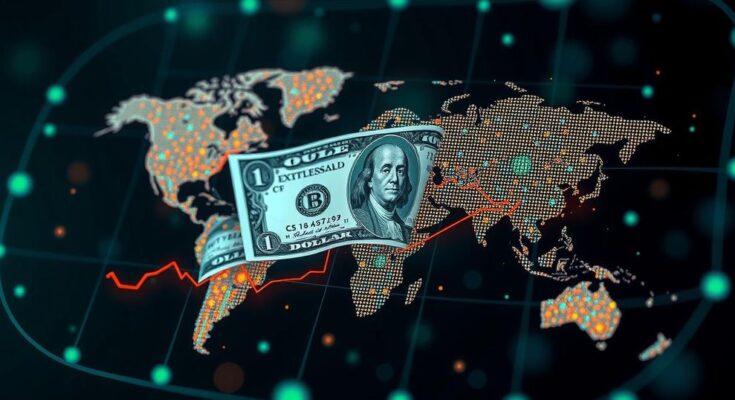The US dollar has strengthened significantly following Donald Trump’s election victory, reaching its highest level in a year. This development benefits American consumers but poses challenges for exporters and raises concerns about the increasing trade deficit, which Trump has previously criticized. The article also touches upon the UK’s economic decisions and Indonesia’s middle class issues.
The strength of the US dollar can be attributed to a series of factors, notably the recent rally following Donald Trump’s re-election. His victory has propelled the dollar to its highest level in a year, making foreign goods more affordable for American consumers and enhancing travel opportunities abroad. However, this robust dollar poses challenges for US exporters who may struggle to compete in international markets, potentially leading to an increase in the trade deficit, a concern frequently expressed by Trump, who traditionally favors a weaker dollar. This article also discusses the economic choices facing the United Kingdom and addresses the situation of Indonesia’s shrinking middle class.
The US dollar is often seen as a global reserve currency, and its strength can influence international trade. A robust dollar generally results from investor confidence in the US economy. Events such as election victories can sway market perceptions, impacting currency values. The implications of a strong dollar extend beyond domestic consumers to affect exporters and the economy’s overall balance, creating a landscape of choices for policymakers and international partners. Furthermore, economic dynamics between the US and other global currencies can reflect larger geopolitical trends.
In conclusion, the recent strengthening of the US dollar following Donald Trump’s election victory has multiple ramifications. While American consumers benefit from lower prices on foreign goods and travel, exporters may find competitiveness waning, raising concerns about the trade deficit. As these developments unfold, they provoke broader discussions on US economic strategy and international relations, particularly in contexts like the UK’s economic model and Indonesia’s socio-economic challenges.
Original Source: www.aljazeera.com




